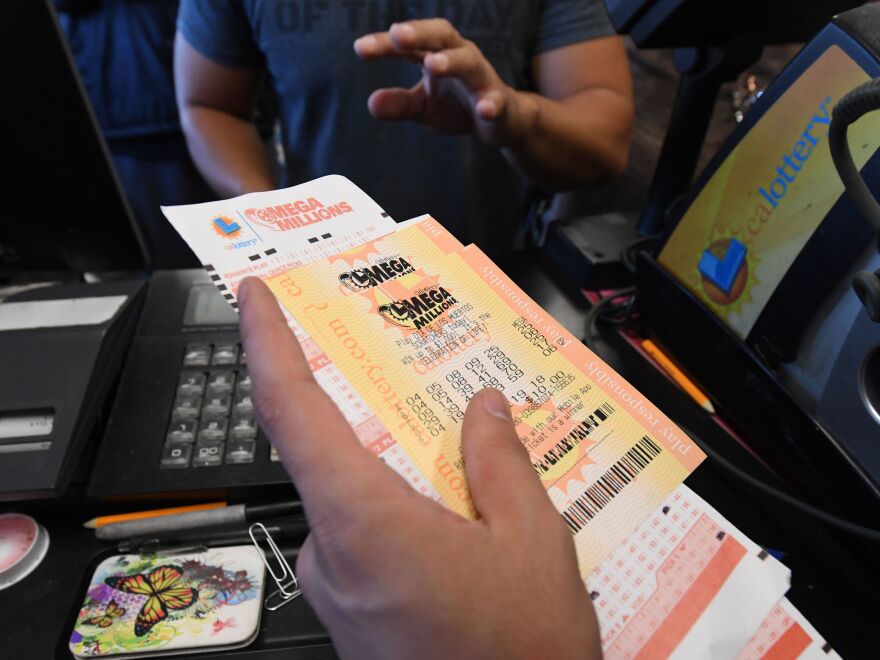Anticipation is growing along with the zeros in the Mega Millions lottery winnings. The prize hit $1.6 billion after no one won the jackpot in a drawing on Friday night.
That's the largest lottery jackpot in history, surpassing the $1.586 billion Powerball prize in January 2016.
Mega Millions lead director Gordon Medenica called it "uncharted territory."
A winner who wants the money in a lump sum can opt for the cash option of about $905 million.
The next drawing will be on Tuesday at 11 p.m. ET.
Medenica tells NPR that about 280 million tickets were sold for the drawing on Friday.
The odds for winning on Tuesday are about 1 in 302 million — almost the adult population of the United States.
And, while lottery hopefuls have their superstitions, "The whole process is completely random," Medenica says. The overwhelming majority of people use the Quick Pick option and let the computer choose their numbers for them.
Even some NPR hosts are taking their chances.
Ticket sales peak on Tuesdays and Fridays, the days of lottery drawings. They ramp up quickly throughout the day, Medenica says, and tend to peak between 6 and 8 p.m., as people come home from work.
The odds are pretty good that a winner — or winners — will get good news on Tuesday night. But, if no one does, the Mega Millions jackpot will hit a new record.
Copyright 2021 NPR. To see more, visit https://www.npr.org.





